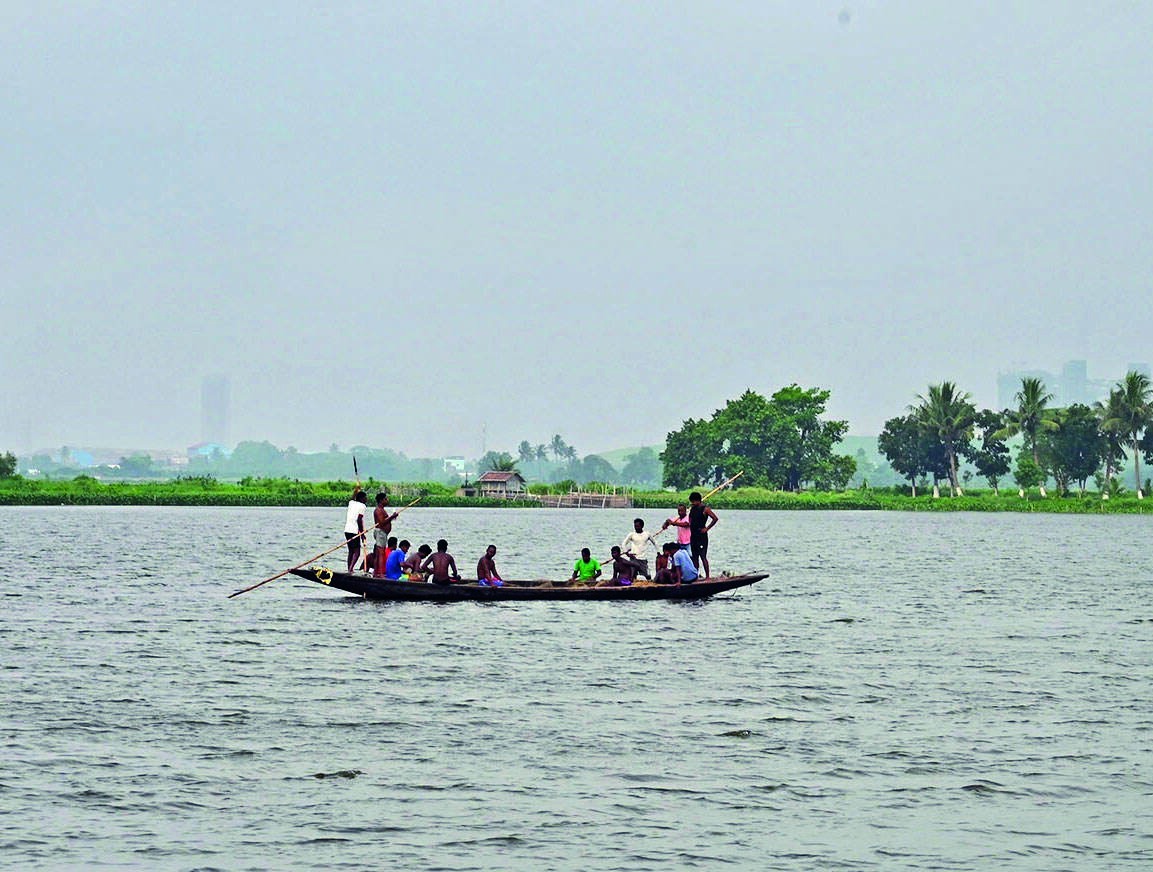State rejuvenates waterbody in Kolkata at a cost of Rs 2 cr

kolkata: In its commitment to protecting the East Kolkata Wetlands (EKW) regarded as the lungs and kidney of the 'city of joy', the state government has rejuvenated Bonbheri — one of the waterbodies inside EKW by spending Rs 2 crore.
The waterbody was being filled up with the apparent purpose of setting up a resort. The restoration was taken up following a Calcutta High Court order.
Vivek Kumar, Additional Chief Secretary of the state Environment department said that EKW which is a Ramsar site spread across 12000 hectares of land is a miracle of nature as it is capable of naturally treating waste-water to the extent of 910 million litres per day. "It is not only responsible for preventing the city from massive inundation in case of heavy rain but also ensures that groundwater depletion does not emerge as a major threat for the city. Fishes, vegetables and paddy are cultivated with this water. So for maintaining the ecological balance in Kolkata, we have to save EKW," Kumar said at a programme organised by the West Bengal Pollution Control Board (WBPCB) to commemorate the occasion of World Environment Day on June 5.
The state Environment department has come up with a five-year comprehensive EKW Management Plan (2021-26) intending to protect the wetlands and at the same time usher in the development of livelihood of the farmers and the fishermen who are dependent upon this unique environment site.
The place is known for its rich biodiversity and rare aquatic animals.
Marsh Mongoose was discovered by the Zoological Survey of India from this wetland itself.
However, in the recent past, this natural sponge that absorbs excess rainfall and does its bit to reduce pollution is sometimes under threat due to the exponential expansion of real-estate projects.
Kumar said that the state government has planted 15 crore mangroves in Sunderbans by spending Rs 70 crore, involving women from Self Help Groups (SHGs).
"The mangrove trees will grow in the next five to six years and will act as a bio shield for Sunderban and Kolkata against natural calamities, particularly severe cyclones," he said.
In the last three years three super cyclones — Bulbul (2019), Amphan (2020) and Yaas (2021) hit the state and according to experts, the anthropogenic factor is a major contributor to climate change which is a stark reality present.
Several publications were released on the occasion, including some booklets on air pollution and a report on "Patterns and Trends in Open Biomass Burning in West Bengal' prepared by the IIT-Delhi in collaboration with the WBPCB.
State Environment minister Ratna De Nag, chairman of WBPCB Kalyan Rudra and Member Secretary of WBPCB Rajesh Kumar were also present on the occasion.



